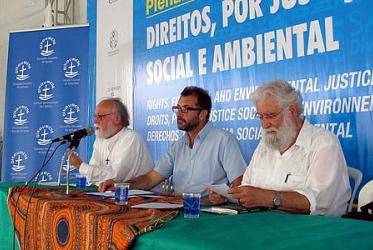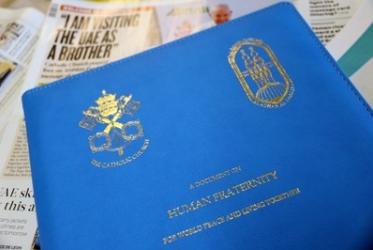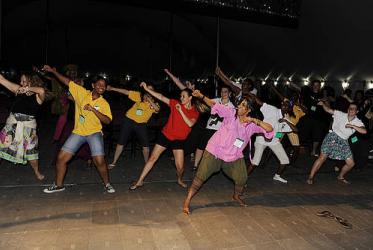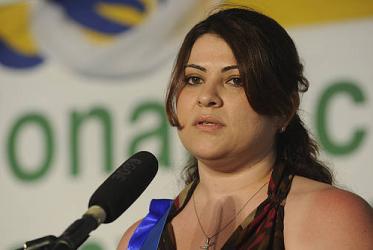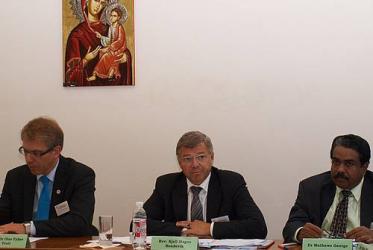Displaying 241 - 260 of 281
Preventing violence and HIV pandemic in Nigeria
19 April 2012
African churches address peace and security issues
31 January 2012
WCC moderator expresses solidarity with church in Indonesia
11 October 2011
Building peace in solidarity with the poor
12 September 2011
When pastors prey: book breaks silence
20 May 2011
WCC Central Committee focuses on peace and justice
25 February 2011
Interfaith partners advocate for health at UN summit
17 September 2010
Putting faith at work to halt the spread of HIV
24 March 2010
Christians begin to rebuild their lives in Orissa
07 October 2009
